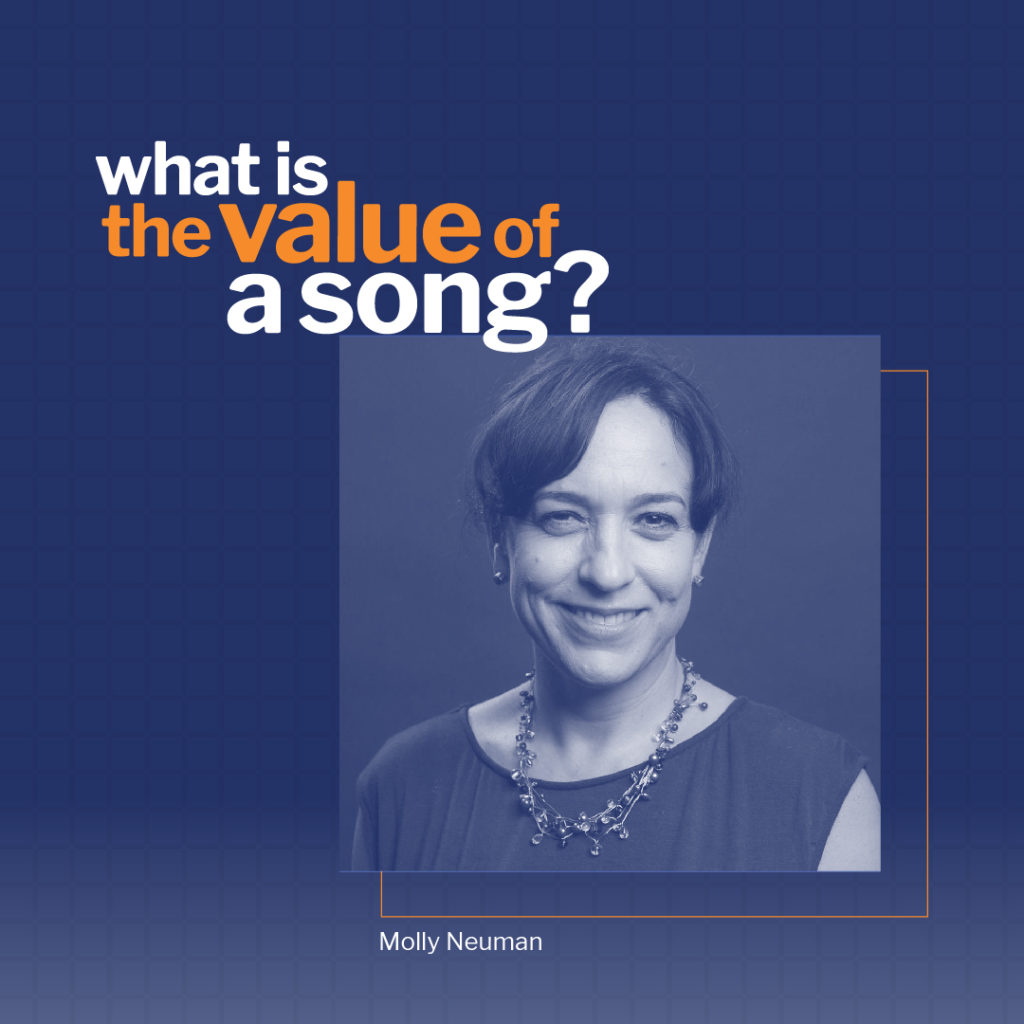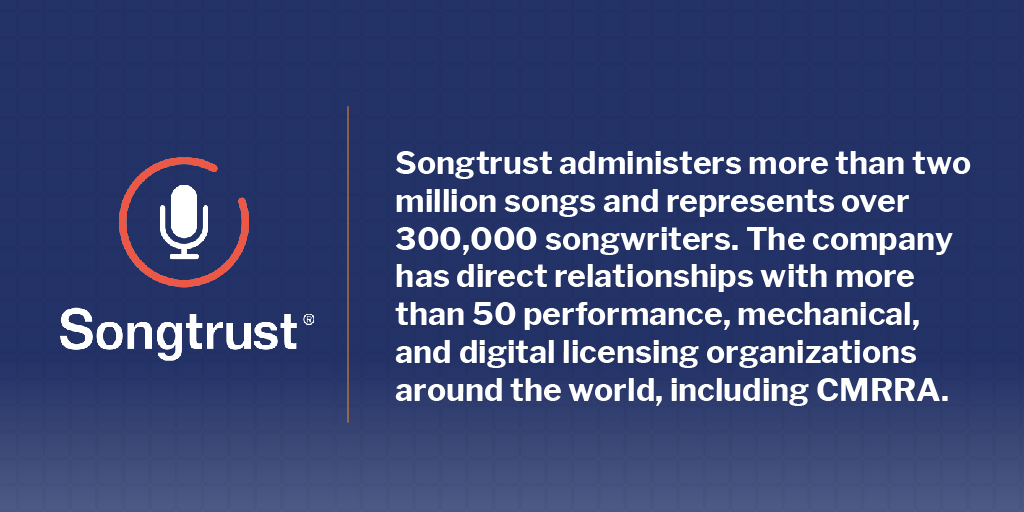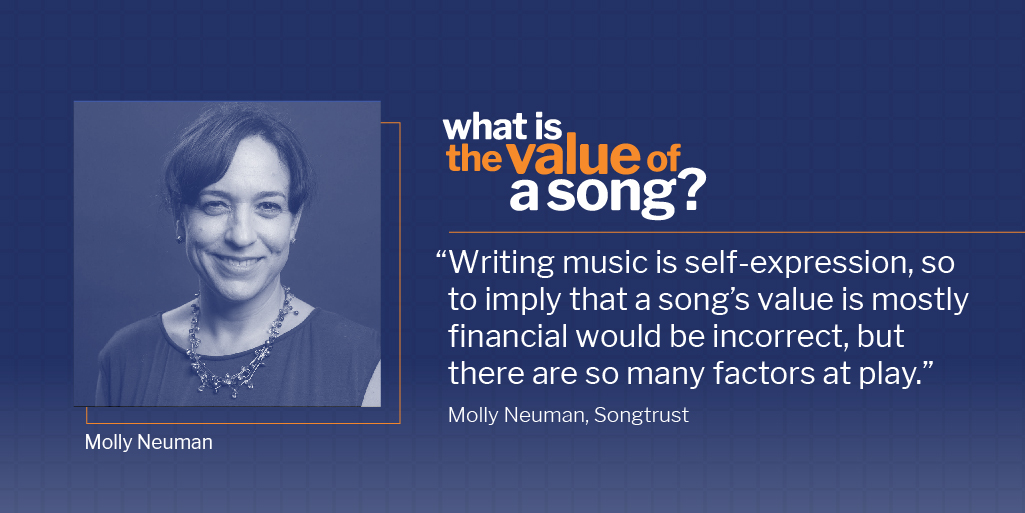From Riot Grrrl to royalty advocate, Songtrust President, Molly Neuman, speaks her mind.
By Isabelle Speerin

Some may know Songtrust President, Molly Neuman, as a pioneer of the 90s riot grrrl feminist movement, but she didn’t stop there. Decades later, she’s still advocating for creators.
Aside from a stint in California, Neuman was born and raised in Washington D.C. where both of her parents worked in Congress and shared a mutual passion for music. “Politics and awareness of events were always present for me growing up,” she said. During her childhood, Neuman played the piano and took voice lessons. As a teenager, she was obsessed with new wave and alternative 80s rock bands and dreamt of becoming an actress.
Neuman moved to Eugene, Oregon after high school to pursue a Bachelor of Arts with an emphasis on non-narrative filmmaking and feminist theory at the University of Oregon. “I wasn’t really part of the punk scene in D.C. in high school,” she said. “That came ironically once I went all the way to Oregon where I got exposed to those bands and met them on tour.” While spending her nights checking out live bands, Neuman spent her days learning about activism, social justice, ethnic studies and institutional challenges to non-dominant culture.
She started a feminist punk band with her dorm neighbour to help highlight the visibility gap for women in the music industry. While female representation has improved since then, Neuman still sees gaps today in terms of overall volume and ratios of women in music. “If people who continue to write songs are inspired by people who continue to be of the same profile and demographic and dimension, it’s really, really hard to break that path,” she said.
Neuman crossed over to the business side of music in 1994 and joined Lookout Records, a punk indie record label best known for releasing Green Day’s first two albums. “I started out as promo, then pivoted a little bit to A&R, working with bands, helping them make their records,” she recalled. When the label wound down in 2006, she moved on to senior roles at eMusic, Rhapsody International, the American Association of Independent Music, and more recently Kickstarter, where she was Head of Music.
In December 2017, Neuman joined Songtrust as Global Head of Business Development, leading the company’s sales, marketing, and business development team for two years. In November 2019, she was promoted to President, and now oversees the company’s day-to-day business operations, global expansion, and royalty collection innovations.

Downtown Music Holdings CEO, Justin Kalifowitz, co-founded Songtrust with Joe Conyers III in 2011 under a single vision – to simplify music rights management and make it easy, affordable, and accessible to anyone. The company’s unique business model focused solely on administration. For a nominal fee, creators could access a global network and retain 100 percent control of the rights to their songs.
“Songtrust’s core business is registration, resolution, royalty collection and payments,” Neuman explains. “We don’t offer creative services or things that many traditional publishers do.”
It’s a formula that’s clearly working. At the end of 2019, the company saw record growth, with its royalty collections up 250% year-over-year from the end of 2018.
Headquartered in New York City, the Songtrust team has rapidly grown to more than 80 people working across nine offices worldwide, spanning North America, Asia and Europe. Today, Songtrust administers more than two million songs and represents over 300,000 songwriters. The company has direct relationships with more than 50 performance, mechanical, and digital licensing organizations around the world, including CMRRA.
“CMRRA has been a critical partner for us in the collection of our mechanicals and we have developed a very positive and fruitful relationship over the years,” noted Neuman. When asked about the impact COVID-19 could have on the industry, Neuman points to a recent Rolling Stone article forecasting an accelerated growth of independents.
“We’re seeing some positive indicators at the moment at Songtrust as well,” she said. “We’re not making any predictions about what this means because there’s a lot yet to be revealed.” Neuman cites the fragmentation of data, rights attribution, and the potential for conflicts down the line as some of the key challenges faced by the industry.
“A lot of people point fingers at different links in the chain but it really starts with who’s collaborating and what the agreements are and if those rights are properly documented and registered,” she said. Neuman is encouraged by the fact that songwriters and producers increasingly have the means to retain creative control of their own work. “I think there is still a lot of inequity around what creators earn from their work versus some of the people who help bring it to market,” she said.
“If you care about owning your own work and not having other people call the shots or impact your rights, there’s certainly much more probability for success these days versus in the past.”
Looking ahead, Neuman is determined to help creators access their complete royalty picture.
“We are trying to make a case for access and fair distribution of royalties so we have less of these dramatic stories around unmatched, unclaimed, or unattributed accounts and more true accuracy and precision in our industry.”

When asked about the value of a song, Neuman believes it’s complex but comes down to the rights holders.
“It’s difficult to assess, especially when the argument of legacy value comes into play,” said Neuman. “Writing music is self-expression, so to imply that a song’s value is mostly financial would be incorrect, but there are so many factors at play here. For example, how do you calculate a proper value if the song was never released? Overall, I would say a song’s value can only be determined by its rights holders as they have the most intimate knowledge of the song’s creation, meaning, and usage.”
Neuman sits on the Advisory Boards of Music Business Association, Women in Music and previously served on the boards of SoundExchange and A2IM. She has been recognized in Billboard’s 2019 Women In Music Top Executives List and its 2018 Digital Power Players List.
She lives in Brooklyn, New York with her family.
Thinking about becoming a client of CMRRA? Already a client but you have questions? Email us at [email protected] and we’ll get you the answers you need.


